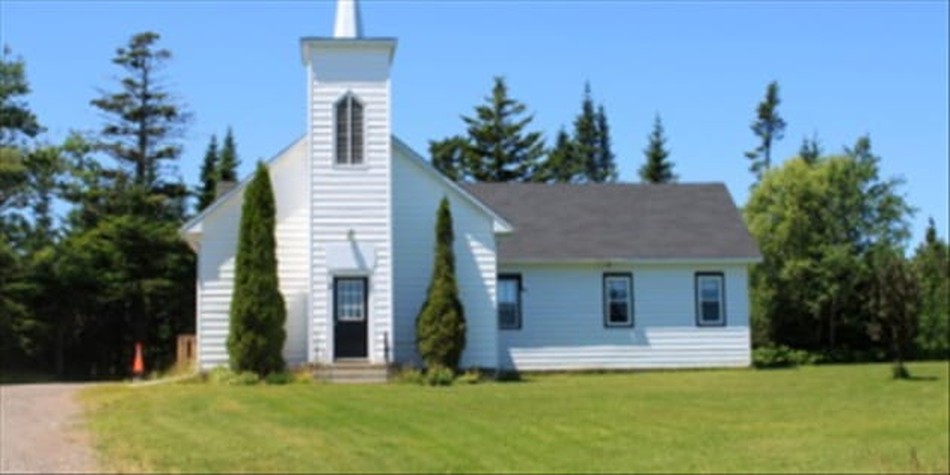With a few exceptions, all churches were small at one time. They began with a handful of people and went forward from there. Some grew a great deal and are still expanding, some grew a little and leveled off, while some failed to grow at all.
If most of the churches in America of all denominations are small -- and in my mind, that means 100 or less in attendance -- then several things are true:
- In the words of Lincoln about common folk, "God must have loved them; He made so many of them."
- Small churches must be doing something right or people would not keep attending them.
- The "bigness culture" that is so dominant in American life has dumped a burdensome load of guilt on these small congregations. "If you're so good, why aren't you big?" seems to be the mantra.
- For every book celebrating the small church, there are a hundred telling them how to leave smallness behind and become "great."
Someone should put in a good word for small churches. Think I'll give it a try.
Here are my observations on small churches in America.
1) Size does matter
Although we sometimes say that the size of a church is irrelevant, that's not exactly right. Francis Schaeffer said there are no small churches and no big pastors. That's almost right, too, but not totally.
The numbers of people who participate in a church will usually dictate the income it receives and therefore the ministries it is able to do. Size matters.
The church that wants to send its members on missions to Haiti or Belize or Ukraine will need money. It takes members to contribute the money. A small congregation can come up with the resources to fund such excursions, but it's harder.
The church that wants to have a full-time pastor living on the field will need money for his support. The members are the ones expected to give that money. A small congregation will almost always less money.
Size is important.
2) But size does not have to be determinative
The small church can do everything it needs to do and everything the Lord wants it to do. God is its Resource, and His supplies are inexhaustible.
The greatest small church is one where the leaders and members never ask, "What can we afford?" but "What does the Lord want us to do?" Such churches are visionaries.
If the Lord wants a congregation of fifty members to send a delegation to Haiti to help with the rebuilding of lives, a "great small church" will find ways to do it. My opinion is the absolute worst way to fund such projects is for the church to set up a table at the entrance of the local supermarket and ask the public for contributions. That makes the church a charity, not a ministry. Good people will often give a contribution--I try to do so myself--but they will do it warily, unsure of whether the money will ever make it to the designated project.
Better for the members to get under the burden of funding the work. Call the members together, prayerfully set the goal, and ask each one to commit to reaching it.
The fellowship and camaraderie of working together to achieve a big goal will far outstrip the joy of collecting the money at the supermarket on Saturday. The sense of accomplishment once the mission team returns can be life-changing to a small church.
Small churches can do anything the Lord wants them to do. The first congregation assigned to reach the world with the gospel of Jesus was no more than 120 strong. And yet, look what they did.
3) It's easier to get things done in a small church
A church running 50 in attendance will have a part-time pastor and maybe 3 deacons. If a decision needs to be made today, the four of them can meet in the hallway between Sunday School and Church. All the leaders of that church combined will not number more than a dozen. Such a small group can meet easily and quickly and do their business efficiently.
The larger the organization, the longer it takes to start it up, turn it around, or bring it to a halt.
A leader once said of our denomination, "It takes a full generation to say 'hello' to Southern Baptists." He was referring to the time required for a communication to filter down through the various layers of denominational bureaucracy and to penetrate every congregation.
If the pastor of a large church requires six years to "become" the leader in the fullest sense of the word--that's a figure I've heard for years--then, it takes a lot less time for the shepherd of a small congregation. The pastor of fifty people can learn their names quickly. He can phone every home in an hour or two. In a small community, he sees his members every time he runs to the store or eats in a restaurant.
When the small church votes to begin a ministry or buy a piano or bring in a new staffer, the members fully expect to see something happening the next time they meet. They voted it, the person responsible got the message, it should be happening. There are few complications to making things happen that they all agree on.
4) A small church gives personal attention
Someone reading this will remember his name. A few months after Katrina wrought its deadly work on our part of the world, Billy and Franklin Graham held a weekend meeting in the New Orleans Arena. Each service was preceded by a colleague of theirs who played what was billed as "the world's fastest guitar." He played, sang a little, and shared his testimony. I will not forget one thing the man said.
He grew up in a small church. The church was so tiny, he and his brother were the entire youth department. Their pastor was 75 years old.
I was stunned.
I wondered what would happen if we could go back to that church, perhaps 30 years earlier, and inform them that one of their members would become a great talent and a world-renown witness for Christ. Would they believe it? Or would they take the dodge of so many small churches everywhere, that, "Nothing important will ever come out of our small church"?
The fact that this youth came from that church tells us they did something right.
Over the decades, I've spoken to college groups on many campuses. Always, before the speaker rises, the students will lead the service. They handle the welcome, pray the prayers, make introductions, and sing. My observation is that the most gifted of these young people grew up, not in mega-churches where the youth group numbered in the hundreds, but in small churches where they were encouraged to take a lead.
5) A small church puts everyone to work
The larger the organization of any kind, the smaller the percentage that will handle the actual work. In a small church, everyone is needed to work and, if it's a "great small church," everyone is put to work.
A small church uses volunteers everywhere--in the office, cleaning the buildings, mowing the lawn, teaching children, leading choirs, playing the piano. A small church will not hire a painting contractor to refurbish the buildings; it will have a "work day" and the members will do it all on a Saturday.
A small church, one that does it right, will come closer than most to fulfilling Romans 12:3-8 where each member uses his/her spiritual gifts to do the work God gives to them.
6) A small church can excell at fellowship
My personal prescription for Christian fellowship is: each member of the church loves the Lord, likes each other, and welcomes the newcomer to their midst. When they work together, they have fun doing it.
If a newcomer feels intimidated on walking into a huge religious edifice, he will feel more comfortable entering a small, humbler church building. A small church can take advantage of this.
Instead of bemoaning the absence of stained glass windows and pipe organs and vaulted ceilings, the members of a small church will recognize that those can be negatives to an unchurched fellow entering for the first time. He is far more likely to feel at home in New Home Church No. 2 than the First-Metro Church.
The danger with small churches, of course, is that they will have great fellowship within their own membership but freeze out the newcomer. The members have known each other for so long, they may function more like a large Sunday School class than a Church of the Lord Jesus Christ.
At the invitation of the pastor, I was visiting Bridgeton Baptist Church a few miles from my house. The church sits in a lovely middle-class neighborhood but has not grown in years. The pastor was trying to find the key to bringing in new people. "If we don't," he said, "this church is going to die within one generation."
The forty or fifty members seemed to average 60 in age. That morning, I met several of them and enjoyed their fellowship.
Later, I told the pastor, "What your people see as its problem, you should turn to an advantage."
The problem, most of them felt, was the age of the members. In churches and denominations all across this land, if a church is not filled with crowds of young adults and children, they're made to feel they are doomed.
I said, "Pastor, if I were a young father looking for a church for my family, I would bring them to Bridgeton Church. Think of all the grandparents and uncles and aunts my children would have. Your people would smother them with love."
That was a new idea to him, one he liked so much he shared it with the church and used it as the theme of their outreach in the community.
It's not necessary to state the obvious here, that the typical young family is looking for a large church with a variety of ministries and opportunities for their children. I think many of them are making a mistake.
I'm the product of a small church--and a large one too, come to think of it.
The small church provided the nurturing environment for our family during my childhood. I came to know the Lord in the small church. I was taught the Bible and knew I was loved there.
The large church--I joined it during college--thrust me into the middle of a great group of excited Christian young people where I could grow. It gave me a vision for the world. In my second year in that congregation, the Lord called me into the ministry.
There are small large churches--made up of hundreds of members but lacking vision, fellowship, and heart.
There are great small churches--with small numbers but excellent vision, warm fellowship, and a great soul.
Let's hear it for the small church.
Original publication date: February 23, 2010








